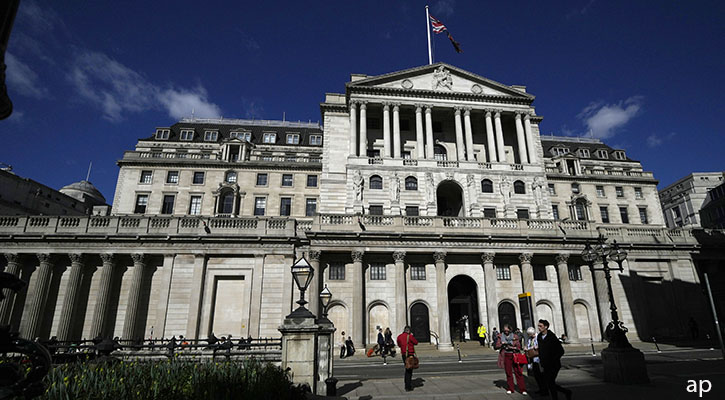
We’re a month into the new tax year, and that’s always a popular time of year to think about savings, investments and pensions. We’ve rounded up the top UK pension news from the last month, from changes to the state pension to the latest workplace pension figures.
British Steel Compensation Agreed
Defined benefit (DB) pension transfers continues to be a controversial topic for financial advisers and the British Steel case has dealt another blow to the image of the advice industry. The Financial Conduct Authority (FCA) has found thousands of workers received “unsuitable” advice to transfer nearly £3 billion out of their group pensions. Employees are set to receive £71 million in compensation.
The FCA has directed its ire at advisers over the case. But “the failure of the British Steel pensions scheme is a failure of regulation” as well on advisers, says Tim Fassam, director of government relations and policy at PIMFA, the UK trade association for investment managers and financial advisers.
Inflation Scuppers Pension Up-Lift
The latest changes to state pension payments took effect on April 11. The state pension increased by 3.1%, based on September 2021’s inflation figures. (Remember that the government has removed the third element from the “triple lock”, which would have pegged the pension increase to earnings and triggered an 8% increase in the state pension).
For those who reached state pension age (SPA) before April 6 2016, the basic state pension rose from £137.60 per week to £141.85 per week. And for those who reached SPA from April 6, 2016, it increased from £179.60 per week to £185.15 per week.
You won’t need reminding that the inflation rate is substantially higher than 3.1%, with CPI hitting 7% in March, the highest for 30 years. If inflation stays high, which policymakers are expecting, there’s a chance September’s CPI number will feed into an April 2023 increase much closer to the rise in the cost of living.
Will The Pension Age Keep Creeping Up?
A call for evidence on changes to the SPA has just closed. SPA is set to increase to 67 by 2028 and 68 by 2046, from 66 now. This is expected to be tweaked in the coming years, but any changes are always hotly debated.
President Macron’s plans to raise the French retirement age continue to be inflammatory, with protests across France to mark May Day. UK pensioners are yet to set provincial cities ablaze but as an active voting bloc, politicians are wise to take their concerns seriously. If state pensions are now linked to a “double lock”, pensioners are facing a “double whammy”: payments are falling behind inflation and people will have to wait longer to retire. Falling life expectancy adds another element of anxiety into the mix.
Tom Selby, head of retirement policy at AJ Bell says the issue won't go away.
“Proposed increases to the UK state pension age could be a political lightning rod at the next general election," he says.
"Given that recent data points to a slowdown in life expectancy improvements, with some regions of the UK seeing average life expectancy go backwards, any move to increase the state pension age will inevitably be hugely controversial.”
Workplace Rates Rising
Ministers find it hard to sell upbeat financial news these days, but the latest stats from the Office for National Statistics (ONS) will at least put a smile on the face of an economist somewhere.
They show a small increase in workplace pension participation in the UK to 79% in April 2021, from 78% in 2020. But before the Department for Work & Pensions starts celebrating, its worth noting the rise was driven by an increase in public sector jobs, itself a response to the pandemic.
Auto-enrolment has been a huge success, though. It’s nearly 10 years since it was introduced in October 2012, at which time participation levels were 47% in total and 32% for private sector pensions.
Adrian Lowery, personal finance expert at platform Bestinvest, says there were signs pension saving rates were starting to plateau. But the amount saved appears to still be rising. One caveat is that there a year’s lag in the data, so soaring inflation in 2021 and 2022 may have had an impact on how much people are actually putting away for their retirement.











.jpg)
















